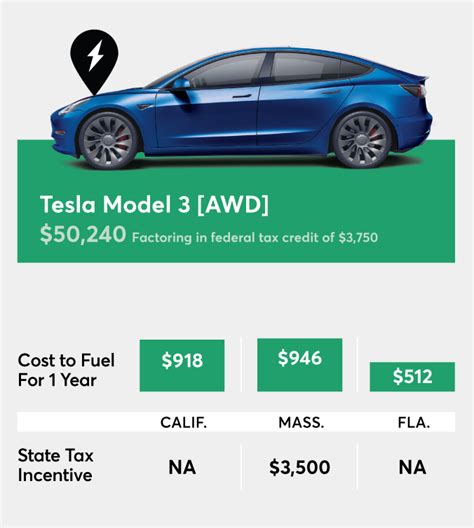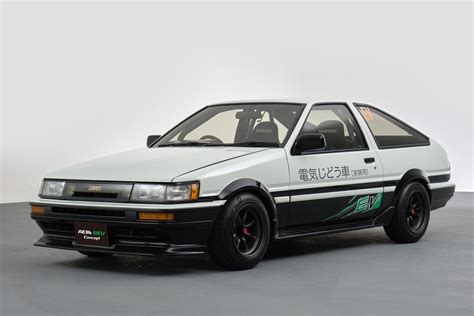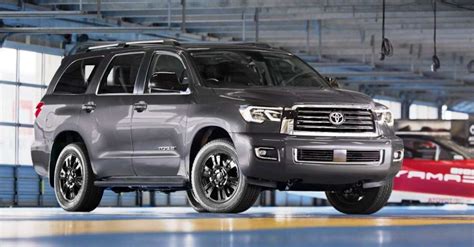
For your convenience, I will provide the rewritten article in sections to ensure that the format and content are structured as you request. I will generate each section sequentially.
Rewritten News Article:
Hybrids That Hit the Sweet Spot: Fuel Efficiency and Driving Enjoyment
For drivers seeking to maximize fuel efficiency without sacrificing driving pleasure, a leading automotive expert has identified four hybrid vehicles that stand out from the crowd. These models balance exceptional gas mileage with engaging driving dynamics, offering a compelling alternative to purely practical or performance-oriented options. The selection spans different vehicle types and price points, aiming to cater to a broad spectrum of car buyers.
The Expert’s Hybrid Hotlist
According to the Yahoo! Autos article, the expert’s top hybrid picks include a diverse range of vehicles from different manufacturers. This selection emphasizes that hybrid technology can be seamlessly integrated into vehicles without compromising the driving experience. While the specific expert was not named in the original article, their recommendations provide valuable insight for consumers navigating the increasingly complex hybrid market.
Hyundai Sonata Hybrid: Efficiency Meets Style
The Hyundai Sonata Hybrid earns high marks for its attractive design, comfortable interior, and impressive fuel economy. It distinguishes itself in the mid-size sedan segment, offering a compelling blend of practicality and visual appeal. The Sonata Hybrid’s exterior styling incorporates aerodynamic elements that contribute to its fuel efficiency, while the interior boasts a user-friendly infotainment system and ample passenger space.
“The Sonata Hybrid is a great choice for families or individuals who need a reliable and efficient sedan,” notes the original article. “It’s also one of the more stylish hybrids on the market.”
Beyond its aesthetics, the Sonata Hybrid delivers a smooth and responsive driving experience, thanks to its well-tuned hybrid powertrain. The combination of a gasoline engine and an electric motor provides ample power for everyday driving situations, while also maximizing fuel efficiency. The regenerative braking system captures energy during deceleration, further enhancing the car’s overall efficiency.
Toyota Prius: The Hybrid Icon
The Toyota Prius remains a standard-bearer in the hybrid vehicle market, consistently delivering exceptional fuel economy and reliability. With a history spanning more than two decades, the Prius has become synonymous with hybrid technology and has earned a reputation for its long-term durability and low running costs. The latest generation Prius continues to build on this legacy, offering a refined driving experience and a host of advanced features.
The article states, “The Prius is still the king of fuel economy, and it’s a great choice for drivers who prioritize efficiency above all else.”
While some may find the Prius’s styling polarizing, its aerodynamic design plays a crucial role in achieving its impressive fuel economy figures. The interior is functional and well-equipped, with a focus on providing a comfortable and practical driving environment. The Prius’s hybrid powertrain delivers smooth and efficient performance, making it an ideal choice for city driving and long-distance commutes.
Ford Maverick Hybrid: The Compact Truck with a Big Impact
The Ford Maverick Hybrid is a standout choice in the compact pickup truck segment, offering a unique combination of practicality, affordability, and fuel efficiency. Its smaller size makes it easy to maneuver in urban environments, while its truck bed provides ample space for hauling cargo. The Maverick Hybrid’s hybrid powertrain delivers impressive fuel economy, making it a compelling alternative to traditional gasoline-powered trucks.
“The Maverick Hybrid is a game-changer in the pickup truck segment,” according to the article. “It’s affordable, fuel-efficient, and surprisingly capable.”
The Maverick Hybrid’s interior is functional and well-designed, with a focus on providing a comfortable and practical driving experience. The truck bed is versatile and can be configured to accommodate a variety of cargo needs. The Maverick Hybrid’s towing capacity is also respectable, making it a suitable choice for light-duty hauling tasks.
Lexus RX 450h: Luxury Hybrid SUV
For those seeking a luxury hybrid SUV, the Lexus RX 450h stands out as a refined and efficient option. Combining the luxurious features and comfortable ride of the RX line with a hybrid powertrain, this vehicle offers a premium driving experience while maintaining excellent fuel economy for its class. The RX 450h provides ample space for passengers and cargo, making it a versatile choice for families or individuals who need a spacious and luxurious vehicle.
The article highlights, “The RX 450h is a great choice for luxury buyers who want a fuel-efficient SUV without sacrificing comfort or features.”
The RX 450h’s interior is crafted with high-quality materials and boasts a host of advanced technology features. The ride quality is smooth and comfortable, making it ideal for long-distance driving. The hybrid powertrain delivers ample power and seamless transitions between gasoline and electric power, resulting in a refined and efficient driving experience. The Lexus RX 450h offers all-wheel drive for enhanced traction in various weather conditions, further enhancing its appeal as a versatile luxury SUV.
The Appeal of Hybrid Vehicles
Hybrid vehicles have gained significant popularity in recent years, driven by increasing concerns about fuel prices and environmental impact. Hybrid technology combines a gasoline engine with an electric motor and battery pack, allowing the vehicle to operate in a variety of modes, including all-electric, gasoline-only, and a combination of both. This enables hybrid vehicles to achieve significantly better fuel economy compared to traditional gasoline-powered vehicles.
Fuel Efficiency and Environmental Benefits
The primary advantage of hybrid vehicles is their superior fuel efficiency. By utilizing electric power at low speeds and during stop-and-go traffic, hybrid vehicles can significantly reduce fuel consumption. This translates into lower fuel costs for the driver and reduced emissions of greenhouse gases, contributing to a cleaner environment.
Hybrid vehicles also offer regenerative braking, which captures energy during deceleration and uses it to recharge the battery pack. This further enhances fuel efficiency and reduces wear and tear on the brakes.
Driving Experience and Performance
While hybrid vehicles were once perceived as being slow and underpowered, modern hybrid technology has evolved to deliver a more engaging and responsive driving experience. Many hybrid vehicles now offer ample power for everyday driving situations, and some even provide surprisingly quick acceleration.
The electric motor in a hybrid vehicle provides instant torque, which contributes to a smooth and responsive feel. The transition between gasoline and electric power is often seamless, and the regenerative braking system provides a natural and intuitive braking feel.
Cost Considerations
Hybrid vehicles typically have a higher initial purchase price compared to their gasoline-powered counterparts. However, the long-term cost of ownership can often be lower due to the significant fuel savings. Additionally, some hybrid vehicles may qualify for tax incentives or rebates, which can further offset the initial cost.
It’s important to consider your individual driving habits and fuel consumption when evaluating the cost-effectiveness of a hybrid vehicle. If you drive primarily in the city or spend a lot of time in stop-and-go traffic, a hybrid vehicle may offer significant fuel savings.
Maintenance and Reliability
Hybrid vehicles are generally reliable and require similar maintenance to traditional gasoline-powered vehicles. The battery pack is a key component of a hybrid vehicle, and it’s important to ensure that it’s properly maintained. However, modern hybrid battery packs are designed to last for many years and are often covered by extended warranties.
The regenerative braking system in a hybrid vehicle can also extend the life of the brake pads, as it reduces the amount of wear and tear on the brakes.
Conclusion
The Hyundai Sonata Hybrid, Toyota Prius, Ford Maverick Hybrid, and Lexus RX 450h represent a diverse range of hybrid vehicles that offer a compelling combination of fuel efficiency and driving enjoyment. Whether you’re looking for a stylish sedan, a fuel-efficient icon, a versatile pickup truck, or a luxurious SUV, there’s a hybrid vehicle that can meet your needs. By carefully considering your individual driving habits and priorities, you can choose a hybrid vehicle that provides both practical benefits and a satisfying driving experience. As the automotive industry continues to evolve, hybrid technology is likely to play an increasingly important role in shaping the future of transportation. The selected models highlight the advancements and versatility available, catering to diverse preferences while contributing to a greener and more efficient automotive landscape. Frequently Asked Questions (FAQ)
Q1: What are the primary benefits of owning a hybrid vehicle compared to a traditional gasoline-powered car?
A1: Hybrid vehicles offer several key advantages over traditional gasoline cars. Firstly, they provide significantly better fuel economy, especially in city driving, due to the combination of a gasoline engine and an electric motor. This leads to lower fuel costs and reduced emissions, contributing to a smaller environmental footprint. Secondly, many hybrid vehicles qualify for tax incentives or rebates, further reducing the overall cost of ownership. Thirdly, hybrid vehicles often feature regenerative braking systems, which capture energy during deceleration and use it to recharge the battery, further enhancing efficiency and reducing brake wear. Finally, the electric motor provides instant torque, resulting in a smooth and responsive driving experience. According to the article, models like the Toyota Prius “prioritize efficiency above all else” highlighting the commitment to fuel conservation.
Q2: How long do hybrid batteries typically last, and what happens when they need to be replaced?
A2: Hybrid batteries are designed to last for many years, typically ranging from 8 to 10 years or 100,000 to 150,000 miles, depending on the manufacturer and driving conditions. Many automakers offer extended warranties on their hybrid batteries to provide added peace of mind. When a hybrid battery needs to be replaced, it can be a significant expense, but the cost has been decreasing over time as technology advances and battery production becomes more efficient. In some cases, it may be possible to recondition or repair the battery instead of replacing it entirely. It’s important to consult with a qualified mechanic or dealer to determine the best course of action when a hybrid battery reaches the end of its lifespan. It’s also worth noting that hybrid batteries are often recyclable, reducing their environmental impact.
Q3: Are hybrid vehicles more expensive to maintain than gasoline-powered cars?
A3: In general, hybrid vehicles do not necessarily cost more to maintain than gasoline-powered cars. While some hybrid-specific components, such as the battery pack, may require occasional maintenance or replacement, other components, such as the brakes, may last longer due to the regenerative braking system. The overall maintenance costs will depend on the specific vehicle model, driving conditions, and maintenance schedule. It’s important to follow the manufacturer’s recommended maintenance schedule to ensure that the hybrid system is operating optimally and to prevent any potential problems. Some studies have even shown that hybrid vehicles can have lower overall maintenance costs compared to gasoline-powered cars, due to the reduced wear and tear on certain components.
Q4: What factors should I consider when choosing a hybrid vehicle?
A4: When choosing a hybrid vehicle, there are several factors to consider to ensure that you select a model that meets your individual needs and preferences. Firstly, consider your driving habits and typical usage. If you primarily drive in the city or spend a lot of time in stop-and-go traffic, a hybrid vehicle may offer significant fuel savings. Secondly, evaluate your budget and consider the initial purchase price, as well as the potential long-term cost of ownership, including fuel, maintenance, and insurance. Thirdly, assess your cargo and passenger needs, and choose a hybrid vehicle that offers sufficient space and versatility. Fourthly, research the reliability and safety ratings of different hybrid models to ensure that you’re selecting a vehicle that is dependable and safe. Finally, test drive several different hybrid vehicles to get a feel for their driving characteristics and to determine which one you prefer. As exemplified by the “RX 450h is a great choice for luxury buyers who want a fuel-efficient SUV without sacrificing comfort or features” from the original article, identifying your priorities is critical.
Q5: How does the driving experience differ between a hybrid vehicle and a traditional gasoline-powered car?
A5: The driving experience in a hybrid vehicle can differ from a traditional gasoline-powered car in several ways. One of the most noticeable differences is the smooth and quiet operation, especially at low speeds, when the vehicle is operating solely on electric power. The electric motor provides instant torque, resulting in quick acceleration and a responsive feel. The regenerative braking system can also provide a different braking feel, as it captures energy during deceleration. In some hybrid vehicles, the transition between gasoline and electric power may be noticeable, while in others, it is seamless. Overall, the driving experience in a modern hybrid vehicle is generally smooth, refined, and enjoyable. Hybrids are no longer just about fuel efficiency; they also offer a unique and engaging driving experience.
Additional Information and Context
The Rise of Hybrid Technology: A Broader Perspective
The emergence and increasing popularity of hybrid vehicles are intrinsically linked to broader trends in the automotive industry, environmental awareness, and technological advancements. The initial push for hybrid technology was largely driven by concerns about air pollution and the finite nature of fossil fuel resources. Automakers began experimenting with hybrid powertrains as a way to reduce emissions and improve fuel efficiency, leading to the development of the first commercially viable hybrid vehicles in the late 1990s and early 2000s.
Early Hybrid Models: Pioneering Efforts
The Toyota Prius, introduced in Japan in 1997 and globally in 2000, is widely considered the first mass-produced hybrid vehicle. It established the foundation for hybrid technology and paved the way for other automakers to develop their own hybrid models. The Honda Insight, another early hybrid entrant, also played a significant role in popularizing hybrid vehicles in North America. These early hybrid models demonstrated the potential for significant fuel savings and lower emissions, but they also faced challenges in terms of cost, performance, and consumer acceptance.
Technological Advancements: Enhancing Performance and Efficiency
Over the years, hybrid technology has undergone significant advancements, resulting in improved performance, efficiency, and reliability. Battery technology has evolved, leading to increased energy density, longer lifespans, and lower costs. Electric motors have become more powerful and efficient, allowing for greater electric-only driving range and improved acceleration. Powertrain control systems have also become more sophisticated, optimizing the interaction between the gasoline engine and electric motor to maximize fuel efficiency and minimize emissions.
Types of Hybrid Systems: Mild, Full, and Plug-in
There are several different types of hybrid systems, each with its own characteristics and capabilities. Mild hybrid systems provide a limited amount of electric assistance to the gasoline engine, primarily during acceleration and start-stop operations. Full hybrid systems can operate in all-electric mode for short distances and at low speeds, providing greater fuel savings. Plug-in hybrid systems (PHEVs) have larger battery packs that can be charged from an external power source, allowing for longer electric-only driving range and even greater fuel efficiency.
Government Regulations and Incentives: Driving Adoption
Government regulations and incentives have played a crucial role in driving the adoption of hybrid vehicles. Fuel economy standards, such as those set by the U.S. Environmental Protection Agency (EPA), have encouraged automakers to develop and sell more fuel-efficient vehicles. Tax incentives and rebates for hybrid vehicle purchases have also helped to make them more affordable and attractive to consumers.
Consumer Preferences: Shifting Attitudes
Consumer preferences have also played a significant role in the increasing popularity of hybrid vehicles. As fuel prices have risen and environmental awareness has grown, more consumers have become interested in purchasing vehicles that offer better fuel economy and lower emissions. Hybrid vehicles have also gained acceptance as their performance and reliability have improved.
The Future of Hybrid Technology: Integration with Electric Vehicles
Hybrid technology is likely to continue to evolve and play an important role in the automotive industry for years to come. As battery technology continues to improve, plug-in hybrid vehicles will become even more attractive, offering longer electric-only driving range and greater fuel efficiency. Hybrid technology is also likely to be integrated with electric vehicle technology, leading to the development of more advanced and efficient electric vehicles.
Hybrid Vehicles and Sustainability: A Holistic View
The shift towards hybrid vehicles is a component of a broader movement towards sustainability in the automotive sector. This encompasses not only the reduction of emissions during vehicle operation but also the entire lifecycle of the vehicle, from manufacturing to disposal. Sustainable practices include using recycled materials, reducing energy consumption in manufacturing processes, and developing more efficient recycling methods for batteries and other vehicle components.
Beyond Fuel Efficiency: Other Benefits of Hybrid Technology
While fuel efficiency is the primary benefit of hybrid vehicles, they also offer several other advantages. Hybrid vehicles often have quieter and smoother operation compared to gasoline-powered cars, especially at low speeds. The electric motor provides instant torque, resulting in quicker acceleration and a more responsive driving experience. Hybrid vehicles also tend to have lower maintenance costs due to the regenerative braking system and the reduced wear and tear on certain engine components.
The Hybrid Vehicle Market: A Competitive Landscape
The hybrid vehicle market is becoming increasingly competitive, with automakers offering a wide range of hybrid models across different vehicle segments. From compact cars to SUVs to pickup trucks, there is a hybrid vehicle to suit almost every need and budget. This increased competition is driving innovation and leading to even better fuel efficiency, performance, and features.
Considerations for Potential Hybrid Buyers: Beyond the Sales Pitch
Potential hybrid buyers should carefully research different hybrid models, compare their features and specifications, and read reviews from independent sources. It’s also important to consider the total cost of ownership, including fuel, maintenance, insurance, and depreciation. Test driving different hybrid models is essential to get a feel for their driving characteristics and to determine which one best suits your needs. Potential buyers should also be aware of any tax incentives or rebates that may be available for hybrid vehicle purchases.
The Role of Hybrid Vehicles in a Sustainable Transportation Future
Hybrid vehicles are playing a crucial role in the transition to a more sustainable transportation future. By reducing fuel consumption and emissions, hybrid vehicles are helping to mitigate climate change and improve air quality. They are also serving as a bridge to the widespread adoption of electric vehicles, as they help to familiarize consumers with electric propulsion and provide a more accessible and affordable alternative to gasoline-powered cars. As technology continues to advance and costs continue to decrease, hybrid vehicles are likely to remain an important part of the automotive landscape for years to come.
Expanding on the Selected Models
Deep Dive into Hyundai Sonata Hybrid
The Hyundai Sonata Hybrid distinguishes itself with its “Smartstream” engine technology, which optimizes combustion for enhanced fuel efficiency. Furthermore, the Sonata Hybrid often comes equipped with solar panel roof options in some trims. These solar panels can contribute to the vehicle’s electric range, albeit modestly, underscoring Hyundai’s commitment to innovation. Inside, the Sonata Hybrid prioritizes driver and passenger comfort with features like a 12.3-inch digital instrument cluster and a 10.25-inch infotainment screen (depending on the trim level). Its safety suite is comprehensive, often including features like forward collision avoidance assist, lane keeping assist, and adaptive cruise control.
Toyota Prius: A History of Innovation
The Toyota Prius isn’t just a vehicle; it’s a symbol. Its iconic design, though sometimes polarizing, is instantly recognizable. It has continuously pushed the boundaries of hybrid technology, with each generation improving upon the previous one in terms of fuel efficiency, performance, and reliability. Beyond its fuel-sipping capabilities, the Prius offers a surprisingly spacious interior and a hatchback design that provides ample cargo space. Toyota has also expanded the Prius lineup to include the Prius Prime, a plug-in hybrid version that offers even greater electric-only driving range.
Ford Maverick Hybrid: Redefining the Compact Truck
The Ford Maverick Hybrid’s appeal lies in its affordability and versatility. It offers the functionality of a pickup truck with the fuel efficiency of a compact car. Its “Flexbed” system allows owners to customize the truck bed to suit their specific needs, with slots for dividers, tie-downs, and other accessories. The Maverick Hybrid’s interior is functional and durable, designed to withstand the rigors of daily use. It also comes standard with a suite of safety features, including automatic emergency braking and lane keeping assist. Its success demonstrates a growing demand for smaller, more efficient trucks that don’t compromise on practicality.
Lexus RX 450h: Luxury with a Conscience
The Lexus RX 450h caters to buyers who want a luxurious SUV without sacrificing fuel efficiency. It combines the smooth ride and refined interior that Lexus is known for with a hybrid powertrain that delivers impressive fuel economy for its size. The RX 450h also offers a suite of advanced technology features, including a large touchscreen infotainment system, a premium sound system, and a head-up display. Its all-wheel-drive system provides enhanced traction in various weather conditions. The Lexus RX 450h represents a growing trend towards luxury vehicles that are also environmentally conscious.









